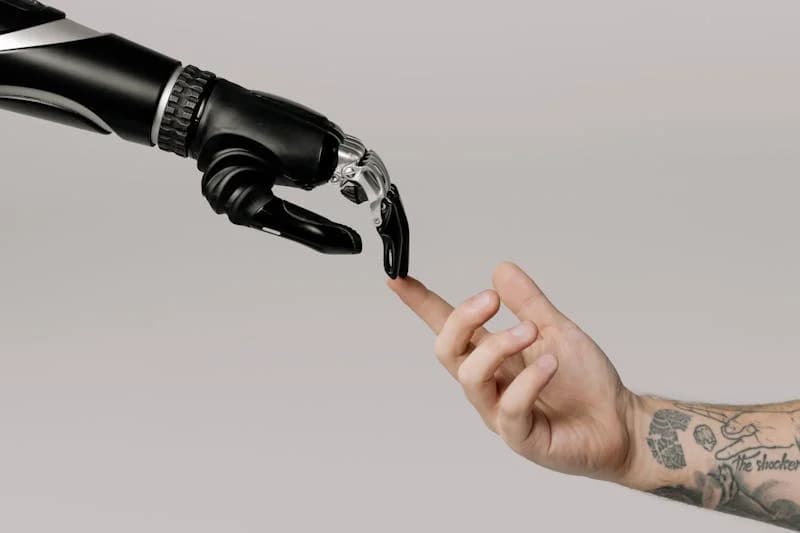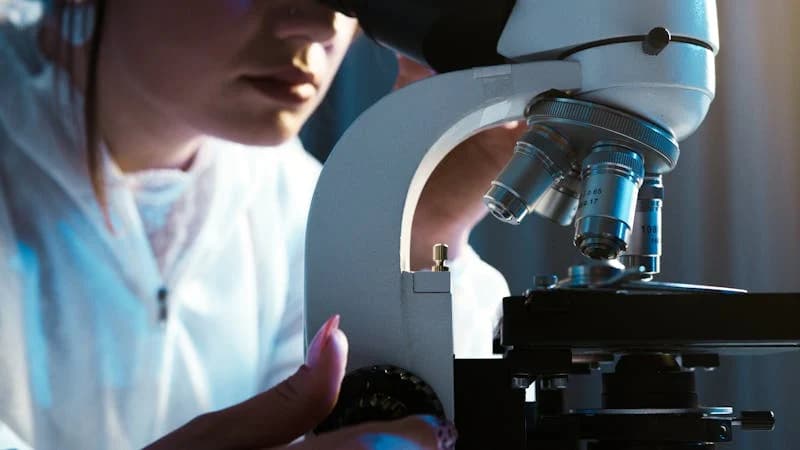
AI and Clinical Practice: Can AI Accelerate Medical Education?
Interest in the application of artificial intelligence (AI) in medicine has increased significantly in recent years. The use of AI in medical education has become particularly relevant. This technology contributes not only to accelerating learning, but also to improving the quality of training of future doctors.
Transforming Medical Education with AI
Dr Bernard Chang, Dean of Harvard Medical School, is actively sharing his views on the future of medical education in the context of artificial intelligence. He is convinced that this is a critical moment to rethink medical school curricula.
In his opinion, educational institutions must adapt to the new digital age, enabling future doctors to be at the forefront of medical innovation. Dr Chang stresses that integrating AI into medical education will not only accelerate learning, but also significantly improve its quality through deeper and more systematic analysis of clinical data.
His speeches often focus on the need to develop new training methodologies that incorporate the use of AI to better understand and analyse medical cases and clinical trials.
Changes in Training Courses
AI has the potential to radically change the approach to teaching in medical schools:
- Basic sciences: Using AI allows students to access a large amount of information and tools to analyse it, accelerating the learning process.
- Clinical skills: AI can help students learn diagnostic and clinical skills faster by giving them tools to simulate clinical situations and analyse different cases.
Examples of the Use of AI in Learning
Artificial intelligence is already being used extensively in medical education, transforming traditional teaching methods and offering students innovative approaches to learning material. Here are some specific examples of how AI is being used in the educational process:
- Exam Preparation: AI helps students prepare for exams by analysing their previous answers and suggesting customised questions to improve knowledge in weak areas.
- Interactive learning modules: Using AI to create interactive modules allows students to learn complex medical procedures and scenarios in a controlled, virtual environment, improving their practical skills without risking patients.
- Automated feedback: AI can analyse students’ responses to clinical tasks and provide instant feedback, facilitating more effective and focused learning.
- Optimisation of learning materials: AI analyses how students interact with learning materials and suggests improvements or changes to courses to enhance learning.
- Patient simulations: Using AI to create virtual patients that mimic real medical cases allows students to develop diagnostic skills and make clinical decisions in a safe learning environment.
- Medical Literature Analysis: AI helps students research and analyse large volumes of medical literature, highlighting key trends and important studies to foster a deeper understanding of the subject.
- Personalised learning: AI can tailor the curriculum to each student’s individual needs, taking into account their learning preferences and past academic performance to optimise learning.
These examples demonstrate how AI can not only accelerate and optimise the medical education process, but also make it more adaptive and effective for training qualified healthcare professionals.
The Impact of AI on Clinical Practice
According to Chang, bringing AI into clinical practice will allow future doctors to focus on improving their communication skills with patients and better understanding their individual needs. AI can take over routine work such as taking a history or compiling an initial list of possible diagnoses.
Benefits for Doctors and Patients
The use of AI in medicine enables:
- Improve the quality of communication between doctor and patient, as the doctor has more time for direct communication.
- Reduce the likelihood of errors by automating routine tasks and verifying diagnoses with AI.
- Personalise treatment by taking more patient data into account.

Challenges and Risks
Despite the many benefits, there are risks and challenges associated with the use of AI in medicine and education. It is important to train students to think critically about the information AI provides and to verify its validity.
In addition, there is a risk that AI may reinforce existing biases in medical data, requiring additional efforts to neutralise them. It is also important to consider the risks associated with reliance on technology, including potential privacy and data security issues.
Ensuring appropriate oversight and developing strict security protocols are becoming key aspects of integrating AI into medical education and practice.
Conclusion
AI is a powerful tool that has the potential to revolutionise both medical education and practice. However, its introduction should be conscious and accompanied by constant monitoring and adaptation of educational programmes. This will help to train a new generation of physicians capable of effectively utilising the power of AI to improve the quality of care and interaction with patients.